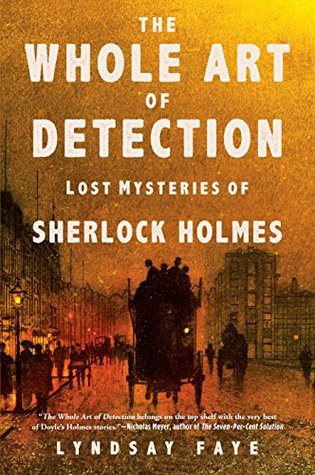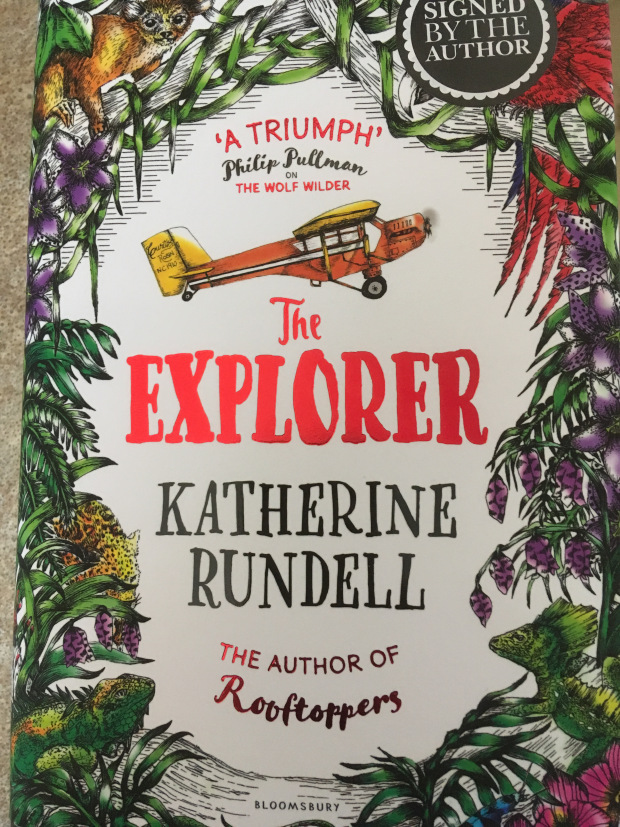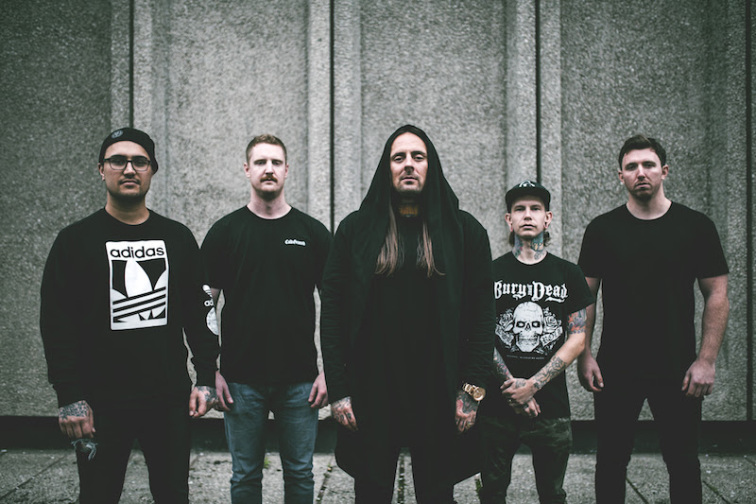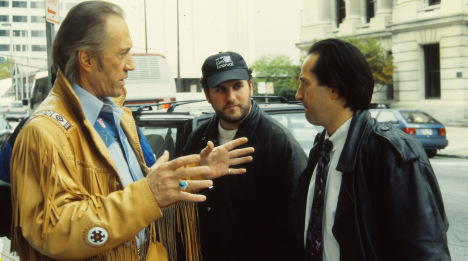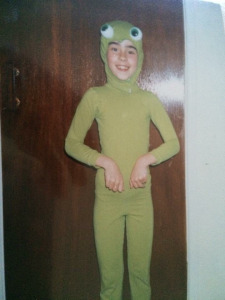This is a story I wrote back in February for a local paper about a local storytelling show called The Trap Door. It’s real people telling true stories in front of a crowd of friends and strangers(if you’re familiar with The Moth Radio Hour then you know the drill.) They’re doing great things, so I thought it was worth sharing here. They’re looking to expand their reach, meaning you might be able to hear these stories in the comfort of your home at some point. Until then, read below for all the details. Enjoy. – J.H.
Storytelling is one of the oldest arts. The act of enthralling a group of your peers, some you may know and some you may not, with a story. Cavemen drew their tales on rocky walls, cowboys told tales around a campfire, and I can’t tell you how many stories I’ve heard(and told) planted on a barstool with my umpteenth beer of the night sitting in front of me. The point is, whether you realize it or not, we crave the story. We crave a piece of someone else’s good fortune or heartbreak. We need to connect on some level, and one of the most intimate ways we can do that with another human being(besides waking up in the morning in a strange bed with an ample amount of regret) is to share a piece of ourselves through storytelling. In Fort Wayne, The Trap Door is here to help us tell our stories.
The Trap Door, in the simplest of terms, “is a curated collection of unscripted, real-life stories.” It’s an evening of friends and strangers coming together to hear someone tell a true tale from their life. Up to this point these Trap Door evenings have been hosted at The B Side at One Lucky Guitar, but starting on February 16th The Trap Door moves to its permanent home at Artlink Contemporary Gallery.
The Trap Door was conceived and created by Ben Larson, John Cheesebrew, and Becca Bell. I spoke to Ben and Becca about how it all came together and where they see The Trap Door going in the future.
J. Hubner: So how did The Trap Door come about?
Ben Larson: I wanted there to be a live storytelling show here in town ever since I really got into the storytelling-as-theater format about 8 or 9 years ago. But like so many things and so many other people, I never thought it was something I could do myself. That’s the thing about starting any kind of project—whether it’s putting on a show, building a house, etc.—the hardest part is deciding that you can do it. Once you figure out that the only thing holding you back is you, the rest all kind of falls together on its own.
Anyway, back in the summer of 2015, I had just moved back to Fort Wayne after spending a year in Seattle. I was dealing with some emotional stuff at the time and wanted a project to bury myself in. At that time, one of the main things that was helping me deal with my stuff was listening to stories and finding comfort in them. So I decided I would start a show here. It’s really that simple. I knew I had a space to use, because Matt Kelley (who owns One Lucky Guitar) had told me that I could use The B-Side any time if I ever wanted to put on something. So I booked a date and set out to find people to tell stories. Along the way, I was introduced to a woman named Kate Riordan, a friend of a friend, who was also interested in starting a storytelling show. She became my partner for that first show and was invaluable as far as putting it all together.
Long story short, we put on the show at the end of summer 2015, and then we both got distracted by other things, so it was a full year before I put on another show. It had never fully left my mind, but I had fallen into a months-long, very deep depression and basically quit life for a while. I was just starting to come out of it over the course of this past summer, and now that I was feeling healthy again it seemed like the perfect time to revive the show, so that’s what I set about doing. Kate had moved to Indianapolis by then, though, so I put on the October show by myself. After that, John and Becca expressed interest in coming on board, and I gladly accepted. Bringing them on has changed so much in so many good ways.
Becca Bell: The Trap Door is basically Ben’s baby. He did a few events about a year and a half ago, and I heard about them, but I stupidly never attended. Then this fall, when he was gearing up to reboot the event, he asked me to be a storyteller. It seemed like a natural fit — I’m a writer, and it seems I’m always telling personal stories — so I gave it a try. But it turned out that telling a 15-minute personal story, without notes, was much harder than I expected. But I got through it. It was a great experience. And we were all blown away by the audience response. As Ben and I got to talking about what he wanted The Trap Door to grow into, he asked me to come on board the planning team.
J. Hubner: Before even the first Trap Door show, was there a story you felt you wanted, or needed to tell?
Ben Larson: Sure, there are lots: the death of my father, my time in Seattle (which in hindsight was a year-long shit show), my catastrophic nervous breakdown this time last year. And maybe I will tell those one day, but I also feel like it’s a little gauche to put yourself on stage regularly at the show you curate, so I am content to hold back for the most part these days. I’ll get up and tell them one day, though.
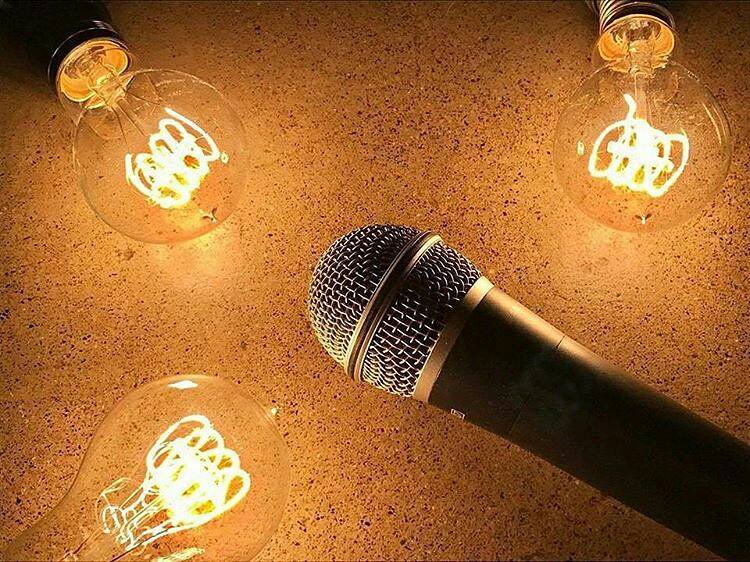 J. Hubner: Can you give me an idea of how you put a Trap Door show together?
J. Hubner: Can you give me an idea of how you put a Trap Door show together?
Ben Larson: As soon as I figure that out, I will let you know. Seriously though, we are still figuring out how best to do it. The basic idea is that we start by putting out a call for story pitches, look at what comes in, and decide what to do/who to put on from there. We also reach out to people if we think they would be good to have on. From there it’s all basic logistics—deciding how best to promote it, what the batting order will be for storytellers (the best way I have found is to think of it like you are making a mix tape), stuff like that. It’s nothing glamorous, but it is time-consuming.
Becca Bell: We’re still essentially in our infancy as an organization (February will only be our fifth show since Ben’s reboot), so we’re working out the kinks. But so far, everyone — from vendors, to storytellers, to audience members — has been really laid back as our events have continued to evolve. It’s a bit crazy when you start selling out on your third show, but it’s a good “problem” to have! I’m sure we’ll continue to dial in the process with each month.
J. Hubner: Have you always had an interest in storytelling?
Ben Larson: I’ve always loved a good story, as I’m sure most people do. I really got passionate about storytelling 8 or 9 years ago, though, when I started listening to podcasts regularly and discovered shows like Risk! and The Moth. Risk! is still my absolute favorite podcast. I actually put off answering these questions because the new episode came out today, and I had to listen to it before doing anything else.
You know, there’s just something so compelling about hearing things that actually happened to people, and I hate to use the cliché, but it’s a reality that truth is so often stranger than fiction. Hearing stories helps me feel connected to people. They help me remember to be compassionate, because they remind me that everyone has a story. We all have our demons, and talking about them reminds us that we are all just people trying to do the best we can. That being said, sometimes they are simply funny and entertaining. Each one is different. I really can’t list all the wonderful things I get out of listening to and telling stories, because it’s too much.
Becca Bell: I suppose the short answer is “yes.” I have a background in journalism and I work as a copywriter, so every resume I’ve ever submitted mentions “storytelling” as a skill set. Add to that a decade working as a barista and bartender, four years on my high school speech team, and a few theater experiences sprinkled in… and I suppose you could say this kinda fit into my wheelhouse. I also love podcasts — including the Moth — so I knew the genre and feel Ben was loosely aiming for.
J. Hubner: You both have mentioned podcasts, such as Risk! and The Moth Radio Hour as influences. Are they jumping off points in order to create your own storytelling format?
Becca Bell: We want The Trap Door to have it’s own personality and flavor, so we’re not trying to identically replicate anything that’s already out there. But the podcast zeitgeist has proven that people are hungry for entertainment that fits around an intimate, first-person, human interest narrative. So many podcasts have taken the confessional aspect of social media and turned it on it’s head — letting people tell their stories in a way that doesn’t pander for “likes” or cause WWIII on a comment thread. In the era of character counts and photo filters, people are starving for real, raw, uncensored honesty. This kind of storytelling changes the way you see people. It makes you feel more connected to your community. And it makes friends out of perfect strangers. That’s really what The Trap Door is about.
J. Hubner: When looking for stories and storytellers to share, what are you looking for?
Ben Larson: Anything that blows our hair back. If we think it will be a good story, we will put it on. Unlike most other storytelling shows, we don’t do themed nights. We may occasionally do that in the future, but we like the idea of a night at The Trap Door being unpredictable. Right now the biggest thing we are figuring out is that having a good balance of stories is important. They can’t all be emotional gut punches, but having them all be lighthearted takes away from the point of having the show, so we are trying to be very conscious of that balance right now.
Becca Bell: For the most part, anything goes. It has to be true. It has to be first-person, meaning something that’s happened to you. It has to be the right length — 12-15 minutes for Showcase events, and 5-8 minutes for Slams. And it has to be unscripted. That’s it. As we receive pitches, we may decide to schedule a story for a particular event, just to create the right mix and emotional arc at each event. And because all stories are uncensored, our events are 18+. The uncensored, unpredictable nature of our events might make some potential audience members uncomfortable, but the raw honesty is part of what makes the stories worth sharing — and worth hearing.
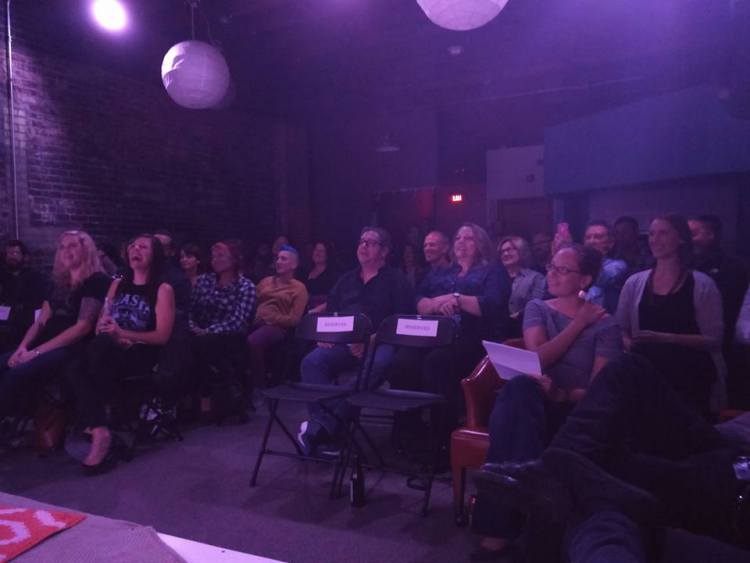 J. Hubner: How have the crowds changed from that first show in 2015 to the recent shows? Has it been a progression from that first night to now?
J. Hubner: How have the crowds changed from that first show in 2015 to the recent shows? Has it been a progression from that first night to now?
Ben Larson: To be honest, the very first show back in 2015 was just okay. The stories were great, and the people who came all said they enjoyed it, but the turnout was kinda lackluster with maybe 20 people actually paid to get in. I keep asking myself what the difference has been between that show and every one since, why getting people out to that show was like herding cats and why these last few have all sold out. I mean, getting better at promotion has helped, but I also think storytelling in general started getting a lot more attention in that year after the first show. But really I don’t know and can’t say for certain.
J. Hubner: What has the feedback been like?
Becca Bell: Every show has blown me away. And from the feedback we hear, I think they’ve done the same for many in the audience. In less than three hours, every show has made me laugh, cry and laugh-cry. You can just hear everyone in the audience thinking, “YES. Exactly! I feel you.” A lot of the stories involve unbelievable scenarios and crazy hijinks, but the sentiments at their core are always universal. Even our first Storytelling Slam — which was entirely impromptu — had people snort-cry-laughing for several minutes straight. It’s like going to a great movie or reading a really good short story, with an entirely new and unpredictable plot every time. Better yet, the protagonists are people who live right in your hometown.
J. Hubner: Has there been a particular story you’ve heard that really affected you?
Ben Larson: Man, that’s a good question. I would have to say Mark Lahey’s story at our last showcase. He told a brutal story about his relationship with his father, and I don’t think I am exaggerating when I say there wasn’t a dry eye in the house. It was so powerful, and he was so brave for telling it. I was honored and humbled that he would do that at our little show. He even went way over on time, but as Matt Kelley put it when we were packing up, “you would have had a riot on your hands if you’d have cut him off.”
Becca Bell: Oh, this is tough. They’ve all left a mark. I think the biggest thing is that when each storyteller gets up on the stage, takes a deep breath and bares their soul, you can’t help but see them in a new light. Last week, an acquaintance of mine, with tons of friends in the audience, told a story he’d basically kept secret for 20 years. And at our first Slam event, a guy who was a relative stranger to most of the crowd told a story that was simultaneously mortifying, hilarious, gross and inspiring. I can’t imagine the courage it took for both of them to get up there and do what they did, but they both left that night having made some new friends. The courage each storyteller shows and the openness with which the audience receives them always restores my faith in humanity. And these days, we could all use more of that.
J. Hubner: Can you tell me about the move from hosting the shows at The B Side to Artlink? Is Artlink The Trap Door’s permanent residence now?
Ben Larson: It is a permanent move, yes. Artlink will be our home for the foreseeable future.
As for how it happened, I got word that Matt McClure (Artlink’s new Executive Director) was looking to do a storytelling show when he heard about us. We got to talking, and within 15 minutes it became clear to both of us that it would be mutually beneficial to move The Trap Door over there. I hope this doesn’t sound too self-congratulatory, but we have been consistently selling out The B-Side based only on word of mouth and a couple of facebook posts, so it was clear to Becca, John, and I that we needed a larger venue. We love The B-Side, but unfortunately space is very limited there, and we have had to turn people away at the door. Obviously we don’t want to turn anyone away. We want to be able to share this show, that we love and hold very dear, with as many people as we can. Also, Matt is doing wonderful things with Artlink, and he is in a position to offer us a unique type of support that will allow us to grow while still keeping the show 100% in our hands and exactly how we want it to be.
J. Hubner: So what’s in store for the first Trap Door showcase at Artlink?
Ben Larson: Oh buddy, it’s gonna be amazing. First, I would encourage everyone to check out Shannon Cason, our guest storyteller, at his website www.shannoncason.com. He is a very big name in the storytelling world. He’s a Moth Grand Slam winner and is a regular on top storytelling shows like Risk!, The Moth, and Snap Judgment. His own show, Shannon Cason’s Home Made Stories, is put out by WBEZ in Chicago (the same station that produces This American Life), and he is one of my absolute favorite storytellers. I have no idea what story he is going to tell, but it will be fantastic. I would listen to Shannon read the phone book.
As for local storytellers, we will be featuring Jason Burnett (who won our story slam back in December), David LeBeau, Haley Johnson, and Nicole Funk. I don’t want to post any spoilers, but I will say that people should expect a very wide range of stories that night. We couldn’t be more excited.
J. Hubner: I’ve heard rumors of a Trap Door podcast. Any truth to that?
Becca Bell: Yes! That is in the works. Or at least, in the planning stages. We’ve had our hands full. I think it would be foolhardy to set a firm deadline on that, but we’ll get there before the end of 2017, hopefully.
J. Hubner: Where do you see The Trap Door heading? Will you be looking for storytellers in ten years?
Ben Larson: I would love nothing more than to still be putting on this show in ten years.
The tricky thing about the future is that we want to plan ahead but not get so caught up that we forget to focus on the most important thing—the next upcoming show. Whatever is next on our calendar will always be our top priority. If I had my druthers, though? If we could somehow make this a touring show, expand into other cities, make The Trap Door a full-time commitment, that would basically be my wildest dreams come true. For right now, though, I am staying focused on chiseling out a little corner of the storytelling world for us.
Becca Bell: Frankly, The Trap Door isn’t about the three of us. It’s about the people who support it, come to events, and keep it alive with their stories. So it’s hard for me to say what it will become. Only time, friends and followers will tell.
Come out to Artlink Contemporary Gallery on February 16th at 7:30pm and check out The Trap Door. Buy your tickets early at https://squareup.com/store/artlink-gallery/item/the-trap-door-featuring-shannon-cason.
Rate this:You like this? Let the world know, bubs:
- More

